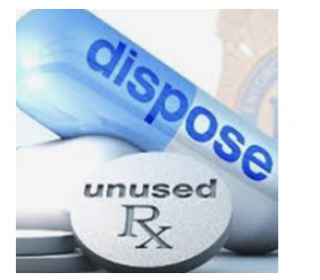 Groundbreaking legislation by Senator Hannah-Beth Jackson (D-Santa Barbara), along with Assemblymembers Phil Ting (D-San Francisco) and Adam Gray (D-Merced), to create the first statewide drug and needle take-back program funded by the pharmaceutical industry has passed the Senate on a bipartisan, 38-0 vote and now heads to the Governor.
Groundbreaking legislation by Senator Hannah-Beth Jackson (D-Santa Barbara), along with Assemblymembers Phil Ting (D-San Francisco) and Adam Gray (D-Merced), to create the first statewide drug and needle take-back program funded by the pharmaceutical industry has passed the Senate on a bipartisan, 38-0 vote and now heads to the Governor.
Senate Bill 212 requires manufacturers of pharmaceutical drugs and medical sharps to establish, implement and fund take-back programs for safe and secure collection and disposal of their products. This is the first statewide proposal in the nation to include both prescription medications and medical sharps. While there are some safe drug disposal sites in California, there are only 489 locations serving 39 million residents, and clearly they're not enough to meet public demand. In addition, these sites are financed by local governments, and ultimately California taxpayers..
“Our current patchwork of take-back programs isn’t working. All Californians need access to safe and convenient ways to dispose of unused medication and sharps. I hope the Governor sees the public health and environmental benefits of the statewide solution offered in SB 212 and signs the bill,” said Assemblymember Ting, who is principal co-author of the legislation.
“Unused prescription drugs and needles create enormous public health and environmental impacts. Left in the medicine cabinet, they can get into the wrong hands, fueling drug abuse and addiction or lead to accidental poisoning by seniors and children or threaten our water supply when flushed down the toilet,” said Senator Jackson, who has long advocated for an industry-funded drug take-back program. “Consumers need a safe, convenient, cost-effective, and environmentally sound method for disposing their unused prescription drugs and medical sharps. SB 212 will ensure that the producers of these products share the responsibility for their safe disposal.”
In 2012, Alameda County became the first local government agency in the country to pass an ordinance requiring drug manufacturers to develop, implement and pay for a drug take-back program. The program was challenged but prevailed in the courts when the Ninth Circuit Court of Appeals upheld it in 2014.
The bill is supported by numerous local governments and municipal agencies, consumer safety advocates, and environmental organizations. Governor Brown has until September 30 to sign SB 212.